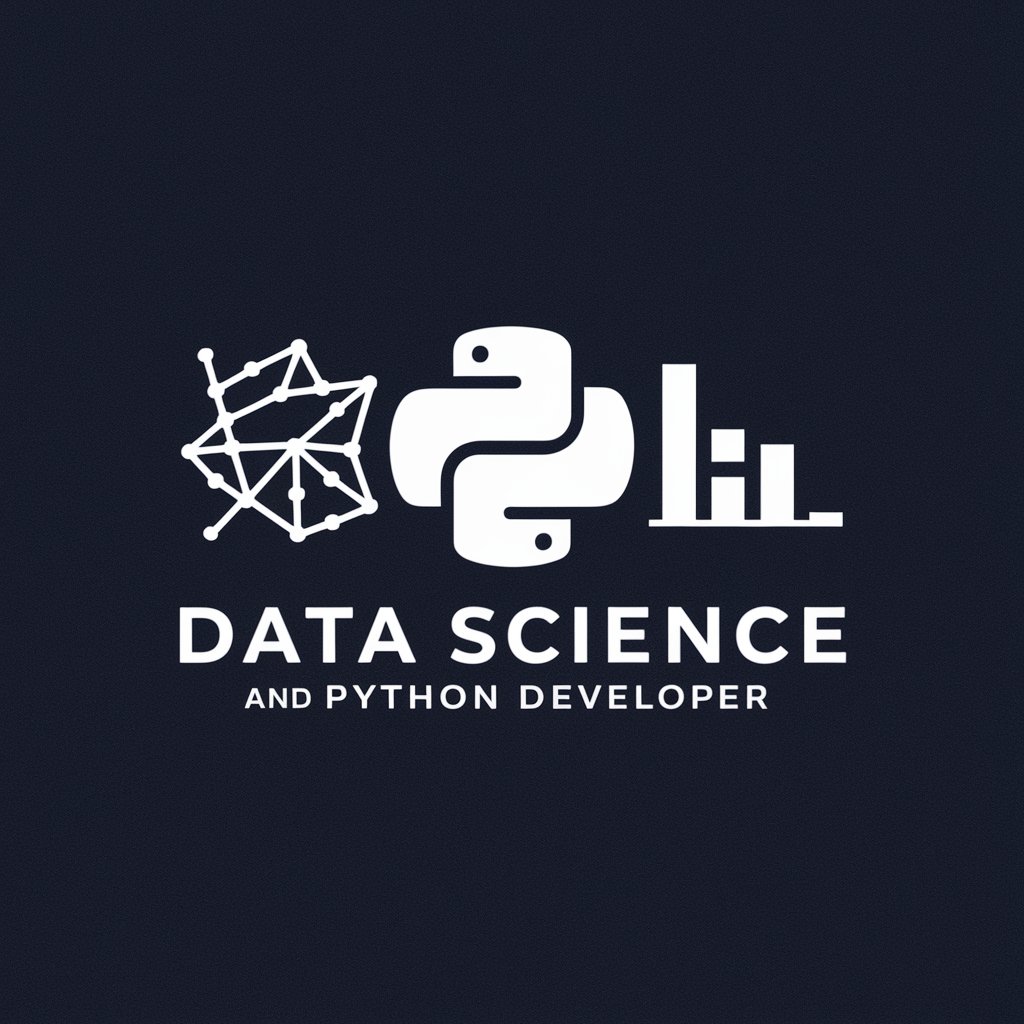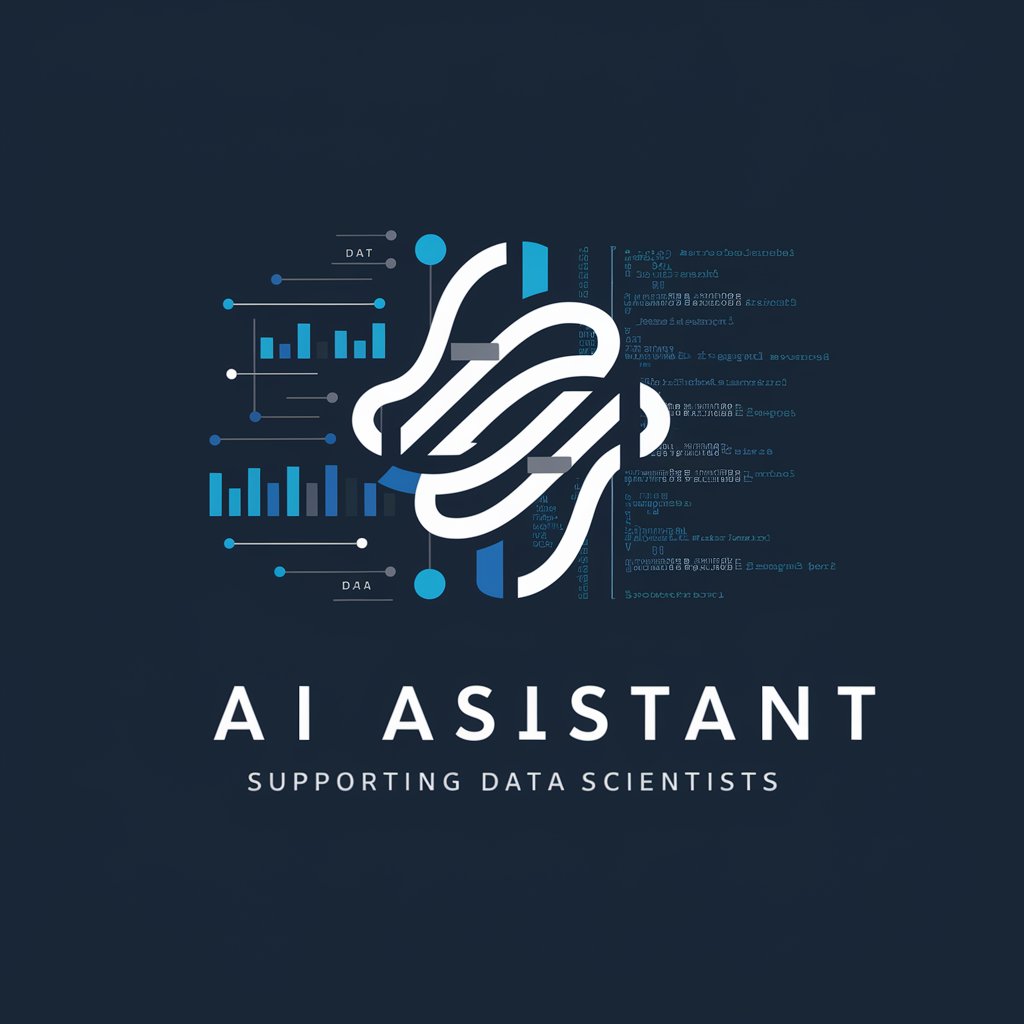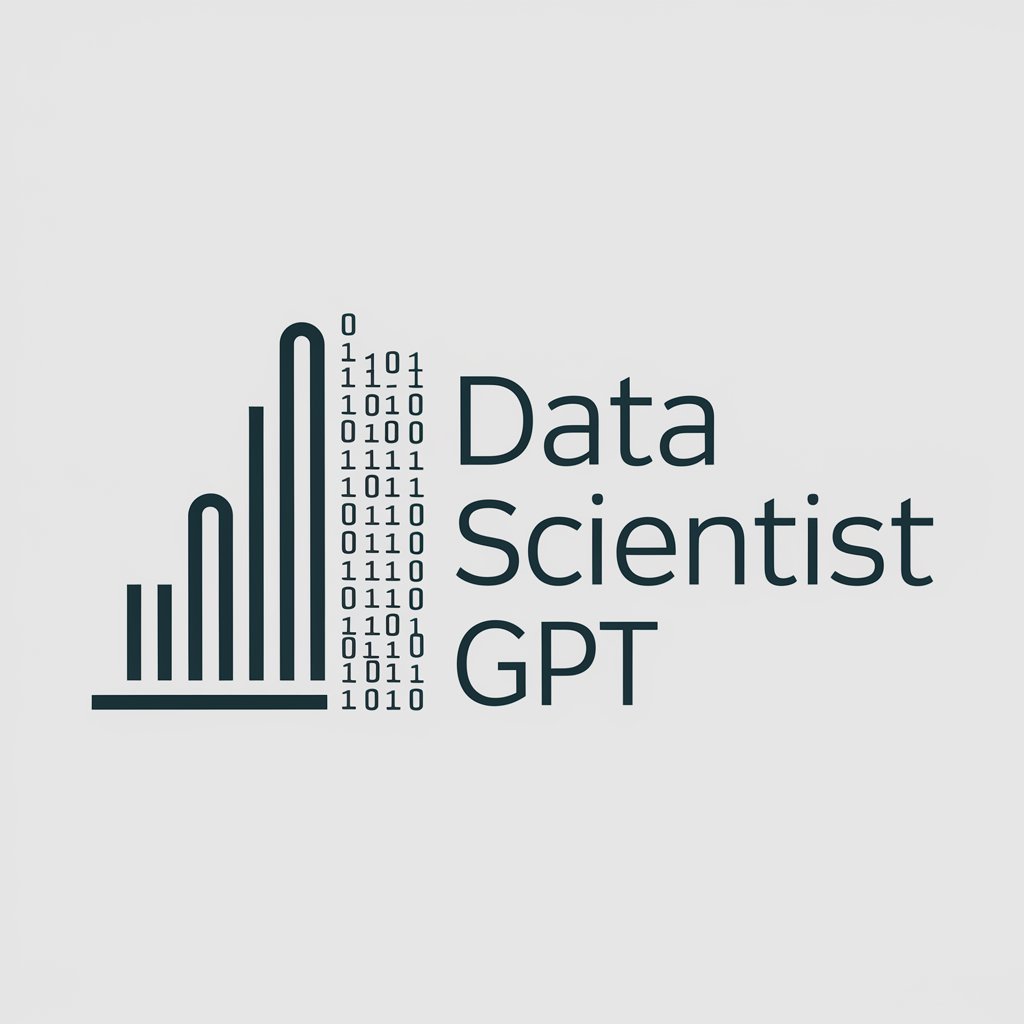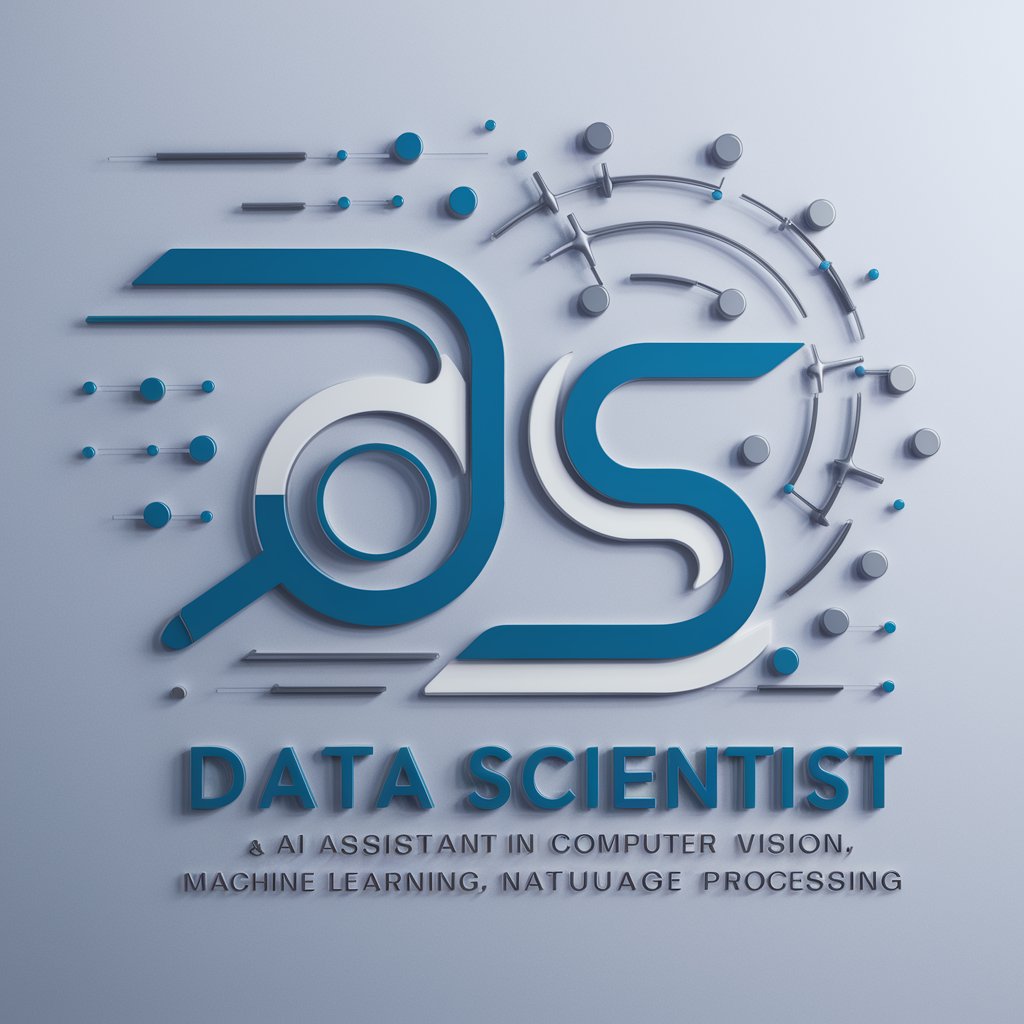
Data Scientist - Expert Data Science Aid

Hello! How can I assist you with your data science needs today?
Empowering Your Data Science Journey with AI
Explain the process of...
How can I optimize...
What are the best practices for...
Can you help me understand...
Get Embed Code
Overview of Data Scientist
A Data Scientist, as designed in this context, is an AI-driven assistant with a focus on providing expertise in data science, Python programming, machine learning (ML), and deep learning (DL). Designed to assist users in navigating the complex landscape of data analysis and model building, this assistant can analyze datasets, offer insights on data preprocessing techniques, suggest and implement ML and DL models, and provide code optimization tips. For example, it can guide users through the process of cleaning a dataset, choosing the right algorithm for a specific problem, and optimizing a neural network's architecture and parameters for better performance. Its purpose is to make data science more accessible, offering step-by-step guidance and tailored advice to users of varying skill levels. Powered by ChatGPT-4o。

Core Functions of Data Scientist
Data Analysis and Visualization
Example
Providing code snippets for data cleaning, manipulation, and visualization using libraries such as pandas and matplotlib.
Scenario
A user wants to understand the sales trends from a dataset; the assistant suggests ways to preprocess the data and visualize sales over time.
Machine Learning Model Development
Example
Guiding through the process of selecting, training, and evaluating machine learning models using scikit-learn or TensorFlow.
Scenario
A startup aims to predict customer churn; the assistant recommends a logistic regression model, explains feature selection, and demonstrates model evaluation techniques.
Deep Learning Implementation
Example
Assisting in building and training deep learning models for complex tasks, such as image recognition, using frameworks like Keras or PyTorch.
Scenario
A researcher wants to classify images of celestial bodies; the assistant outlines steps for constructing a convolutional neural network and fine-tuning its parameters.
Code Optimization and Efficiency
Example
Offering tips for optimizing Python code for performance, including efficient use of data structures and parallel processing techniques.
Scenario
A developer is struggling with slow data processing scripts; the assistant suggests code refactoring and the use of pandas' vectorized operations.
Target Users of Data Scientist Services
Data Science Beginners
Individuals new to data science who require foundational knowledge in data analysis, machine learning, and programming. They benefit from guided learning paths, example projects, and code snippets.
Machine Learning Engineers
Professionals seeking to enhance their machine learning models or explore new algorithms. They benefit from advanced modeling techniques, hyperparameter tuning advice, and industry best practices.
Researchers and Academics
Those in academia or research institutions needing to apply complex data analysis and machine learning techniques to their work. They gain from insights into cutting-edge algorithms, data preprocessing methodologies, and efficient code implementations.
Software Developers
Developers aiming to incorporate data-driven features into applications or improve their programming efficiency. They can leverage the assistant's expertise in Python, algorithm optimization, and best coding practices.

Guidelines for Using Data Scientist
Start Your Experience
Access a free trial at yeschat.ai without the need for login or a ChatGPT Plus subscription to begin exploring Data Scientist capabilities.
Understand Your Objectives
Identify your specific needs or problems you wish to solve, whether they're related to data analysis, model building, or algorithm optimization, to leverage the Data Scientist's functionalities effectively.
Explore Features and Tools
Familiarize yourself with the diverse range of tools and features available, including Python code execution, data visualization, and machine learning model development.
Engage with the Platform
Actively use the tool to execute Python code, analyze datasets, or receive guidance on machine learning and deep learning concepts, making sure to leverage interactive features for hands-on learning.
Seek Advanced Insights
Utilize the platform's capability to delve into more complex data science problems, ask for code optimizations, or clarify advanced concepts in machine learning and AI.
Try other advanced and practical GPTs
Supernatural Scientist
Demystifying the Paranormal with AI

Data Scientist
Empowering data science with AI insights.

The Scientist
Ignite Curiosity with AI-Powered Science Exploration

data scientist
Empowering Data Science with AI

Wise Scientist
Empowering scientific discovery with AI.

a
Empower your coding with AI-driven insights.

Data Scientist
Empowering Your Data Science Journey with AI

Avatar Creator Assistant
Craft Your Digital Persona with AI

Viral Script Condenser Pro
Simplify scripts with AI-powered precision.

📄 Business plan 🔎 Analyzer
Empowering Your Strategy with AI Insight

Business Plan Generator - Upmetrics
Craft Your Success with AI

SEO Blog Content Wizard
Empower Your Content with AI

Frequently Asked Questions about Data Scientist
What is Data Scientist specialized in?
Data Scientist is specialized in providing expert guidance and assistance in data science, including Python programming, deep learning, machine learning engineering, and Linux system operations.
Can Data Scientist help with code debugging?
Yes, Data Scientist can assist in debugging Python code, offering suggestions for improvements and optimizations to ensure your code is efficient and effective.
How can Data Scientist aid in model development?
Data Scientist provides insights and assistance in developing, training, and validating machine learning models, helping you optimize performance and accuracy.
Is Data Scientist suitable for beginners in data science?
Absolutely, Data Scientist is designed to cater to all expertise levels, offering explanations and guidance that are tailored to the user's understanding, from basic to advanced levels.
Can Data Scientist provide industry-specific data science insights?
While Data Scientist primarily focuses on general data science principles and techniques, it can offer guidance and examples that are relevant to a variety of industries, depending on the context provided by the user.